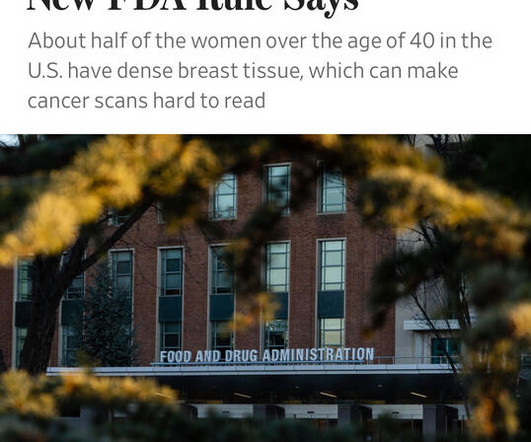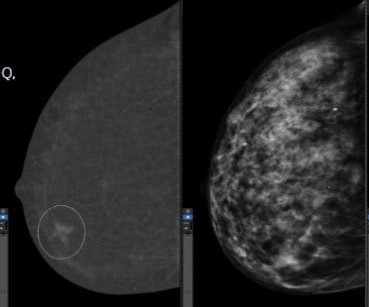Study on breast density notification narratives draws mixed reaction
AuntMinnie
FEBRUARY 16, 2024
Previous studies have demonstrated that dense breast tissue masks breast cancers on mammography, and that supplemental imaging such as ultrasound and MRI confirms suspicious findings within dense tissue. Radiologists have studied and continue to research how breast density plays into breast cancer risk. The study can be found here.












Let's personalize your content